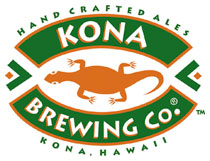Craft consumers are beginning to learn more about the contract brewing model and leading some to question the integrity of so-called “local” brands. But are there valid reasons as to why some craft beer isn’t brewed close to home?
In an article titled “Your Local Beer Isn’t as Local as You Think,” Slate.com reporter Adrienne So presents this question and provides a rundown of examples and reasons for the existence of contract brewing, a model in which a company rents space and equipment from a brewery or hires another brewery to produce its beer.

“It doesn’t make sense to be shipping [water] across the ocean to the mainland in bottles,” he said. “Brewing closer to market has eliminated 800,000 miles and saved 1,500 tons of carbon dioxide, the equivalent to taking 319 cars off the road for a year.”
Contract arrangements have been one way to possibly pave a path in the increasingly competitive craft market. Another possible (yet, less likely) way: produce beer that hydrates its consumer.
A recent article in The Huffington Post describes how researchers at the Griffith University Health Institute in Australia have added electrolytes, which are commonly found in sports drinks, to beer. It may seem gimmicky and paradoxical (consumers often associate beer with dehydration), but researchers claim that the alterations didn’t affect the tastes of the tested beers.
The study also provided a bit of unintentional humor for those that compare light beers to water:
“The altered light beer was also one-third more effective at hydrating drinkers than a normal beer,” the article says.
If the researchers ever want to market this hydrating beer, they may be wise to seek help through a crowdfunding platform, a fundraising model growing in use, particularly by aspiring craft brewers like the ones described in a recent story in USA Today College.
The article mentions Kickstarter, freshly-launched CrowdBrewed and CraftFund as examples within the growing plethora of crowdfunding platforms gaining popularity, regardless of vision. Other growing resources include CircleUp and RocketHub.
“Crowdfunding, another nascent industry, has experienced gains similar to those in the craft beer market,” the article states. “Culminating with the rise of social media and booming start-up ventures over the past decade, the dollars raised from crowdfunding increased from $530 million in 2009 to $2.8 billion last year.”